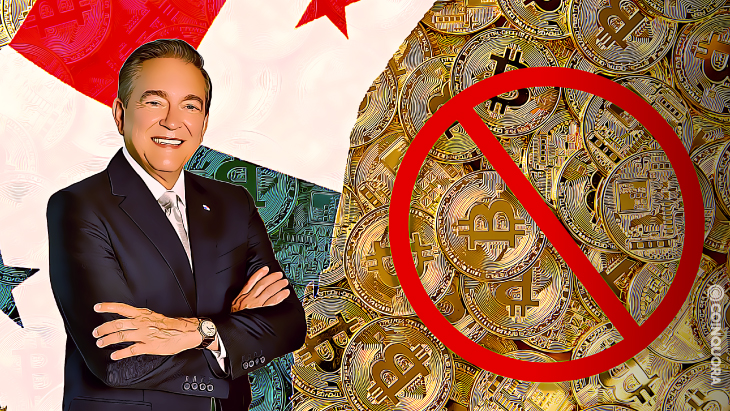Regulation News
- The president of Panama refused to sign a law regulating the use of crypto.
- This is because Cortizo is not yet satisfied with the existing bill.
- Cortizo did mention that he could consider sanctioning some parts of the law.
President Laurentino Cortizo of Panama has stated that he will refuse to sign a law regulating the use of cryptocurrency until it contains tougher anti-money laundering controls.
Panama’s legislative assembly passed the bill last month, making it easier for crypto exchanges to obtain licenses to do business in the country, and regulate transactions in digital currencies.
However, the bill requires the president’s signature before it can become law, and unfortunately, Cortizo is not yet satisfied with the bill’s compliance with anti-money laundering standards.
The president was quoted saying at the Bloomberg New Economy Gateway Latin America conference that “if I’m going to answer you right now with the information that I have, which is not enough, I will not sign that law.” Cortiza added that he and his country take anti-money laundering activities very seriously.
This could be because Panama is on the Financial Action Task Forces’ list of countries that has “jurisdictions with strategic deficiencies” in combating money laundering. With his decision not to sign, Cortizo is adhering to his pledge of implementing the task force’s recommendations and toughening controls on dirty money.
Cortizo is probably also aware of the fact that Panama’s dollarized economy and its well-developed financial services sector puts a target on the country’s back with regards to drug trafficking, and drug organizations in its neighboring countries Colombia and Mexico.
Cortizo did mention that he could consider sanctioning some parts of the law while vetoing others, but he is awaiting legal advice from his legal team on what to do.


